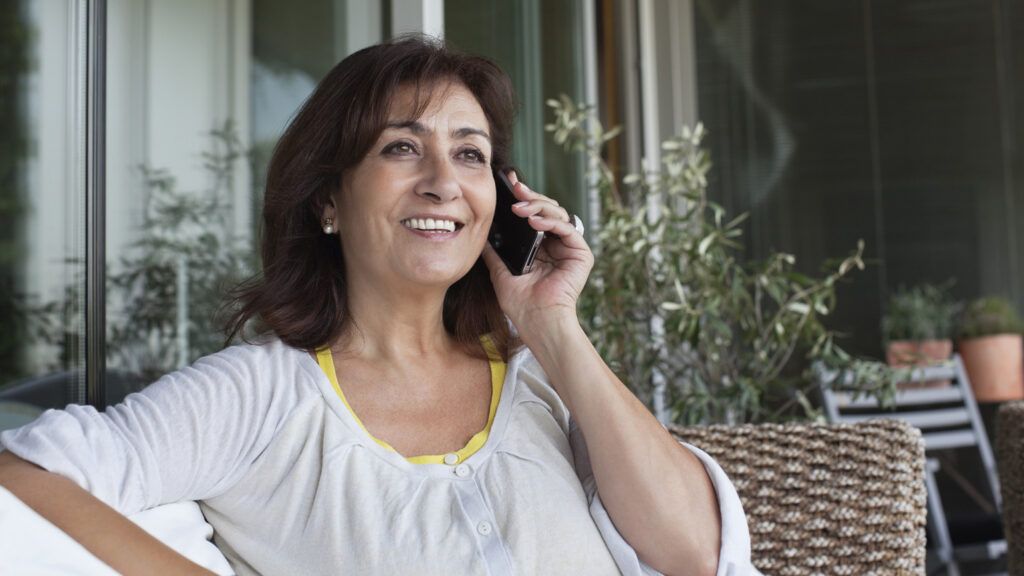Julie Hayes is the Content Manager at Benjamin Rose Institute on Aging.
The demands of sandwich generation caregiving were abundant enough when Covid-19 added a fresh layer of confusion and stress. Members of this generation of caregivers already navigated a daily balancing act between parenting their own children and managing the care of an aging parent or another older loved one. If you are a part of the sandwich generation, distractions were no doubt already familiar to you, and now the pandemic has handed you a host of new challenges. It may be that your loved one’s adult day programs and senior center activities have been canceled or curtailed. Your children may also be doing their schoolwork from home, and their extracurricular activities may have been cut back.
As you attempt to juggle caregiving with work tasks under these circumstances, chances are your self-care has been moved to the back burner. On top of your increased caregiving responsibilities, many outlets you may have turned to for relaxation and comfort are currently not an option. Things like going to the gym or spa, meeting up with friends for coffee or taking a vacation are no longer easy.
Yet, focusing on your own well-being in a time of crisis such as this is enormously important to your mental health. Although it may feel selfish to prioritize your own health when others are struggling, it is actually more important than ever—for your own sake and the sake of your loved ones. According to a Kaiser Family Foundation poll, about 53 percent of adults feel that their mental health has been negatively impacted by the pandemic, and many have experienced negative effects like trouble sleeping, difficulty eating and increased reliance on alcohol.
Research shows that respite can reduce negative effects on mental health like burnout, stress and exhaustion while improving the quality of both your care and your relationship with your loved one. You need respite to take care of yourself during times when you’re overwhelmed by your caregiving responsibilities. You can still find ways to get away and relax even though the pandemic has made doing so more challenging. The following tips offer a few ideas to help you to help yourself:
1. Check out ARCH National Respite Network’s Covid-19 Respite Database
The ARCH National Respite Network and Resource Center was created to help family caregivers locate respite and crisis care services, and is continuing to provide respite resources and support during Covid-19. Their database includes information and tips from numerous caregiver organizations, as well as disease-specific resources and updates from State Respite Coalitions.
2. Pick a spot in your home for relaxation and privacy
You can take advantage of nice weather with a short hike in nature or a spin on your bicycle. But when the weather prevents that or your circumstances make it impossible to go outside, you can enjoy indoor respite by setting aside a place in your home that’s just for that.
Consider choosing a room you can retreat to when you need to be alone. It helps to pick a place that you don’t use for working at home or caregiving, since it can be difficult to fully unwind in your “workplace.” You can go to this room at times when your children or older loved one are involved in activities or are napping. Use the room to take a breath, meditate, play your favorite music, roll out the yoga mat, listen to a podcast or indulge in a personal project that sparks your creativity. Check your concerns at the door and allow yourself to enjoy your private time.
3. Adapt your self-care practices
Covid-19 has required us all to adapt in many ways, and you may need to do the same with your self-care routines. Although many businesses are reopening, you may choose to stay inside if you’re concerned about limiting your potential exposure to the virus so you can provide face-to-face care to your loved one.
If you like getting pedicures, try watching YouTube tutorials and painting your own toes with a new color of polish. Think about joining an online choir. Explore a forum where you can discuss whatever you’re thinking about, whether it be parenting tips or your favorite books.
4. Come up with a responsible backup plan
Sometimes you can’t do it alone, and that’s okay. So, it’s a good idea to have a plan in place as to who’s going to step up and help you, especially if special precautions need to be taken to bring in assistance.
If you’re long-distance caregiving, you may be able to turn to family and friends you relied on before Covid-19 to digitally check in on your loved one. However, if you’ve been providing in-person care, you may need to explore your network for someone with limited exposure to the general public who can safely enter your loved one’s home. They would also need to be willing to follow guidelines about handwashing, proper mask usage and general sanitation.
For maximum safety, it may be most effective to schedule your days off so that the secondary caregiver can self-isolate for the CDC recommended two weeks prior to coming in to help your loved one.
5. Reach out for the help you need
According to emergency responders, one of the worst things you can do in a crisis is nothing. If you don’t ask for assistance when you need it, you may be jeopardizing your own well-being. That, in turn, impacts your ability to be a good caregiver.
Think about the sort of assistance you require, and don’t think twice about searching out the necessary resources. If your mental health is suffering, call a hotline and talk to someone about what you’re feeling. If you’re not sure how to provide your loved one with the necessary care, look into care coordination services like WeCare…because you do or contact an Eldercare Locator information specialist from the U.S. Administration on Aging at 1-800-677-1116. Consider holding a family meeting to discuss how others can pitch in on caregiving when you’re feeling overloaded.
Don’t forget that your needs matter, too, and that self-care is never selfish.






